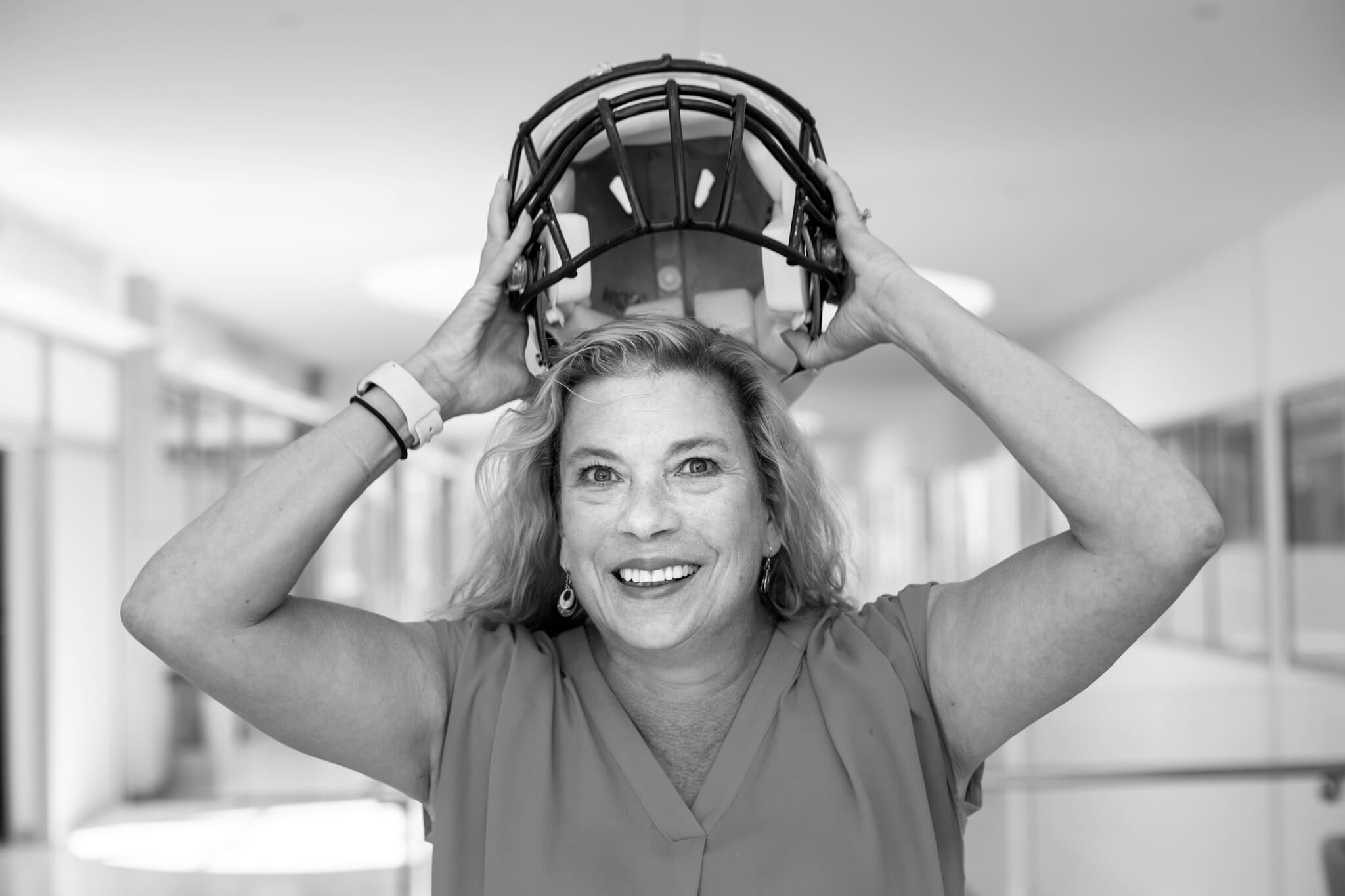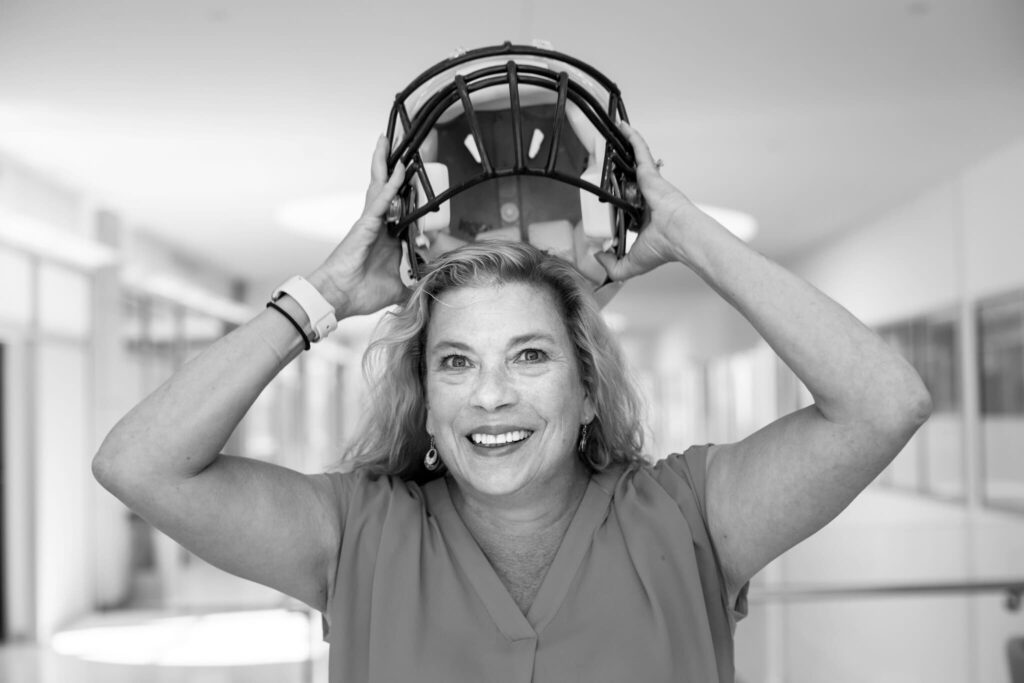
Trailblazer in biomechanics
NAE profile: Ellen Arruda, mechanical engineering

NAE profile: Ellen Arruda, mechanical engineering
Get to know Michigan Engineering’s National Academy of Engineering members.
Professor Ellen Arruda, a renowned expert in polymer and tissue mechanics, has significantly advanced research in theoretical and experimental mechanics of macromolecular materials, including polymers, elastomers, composites, and soft tissues. Her work focuses on experimental characterization and analytical modeling of native and engineered tissues. She holds sixteen patents and has been recognized with awards such as the 2012 Excellence in Research Award by the American Orthopaedic Society for Sports Medicine. She is a fellow and leader in prestigious engineering societies.
For her pioneering research in polymer and tissue mechanics and their application in innovative commercial products, Arruda was elected to the National Academy of Engineering in 2017. View the NAE citation.
As a first-generation college student and a role model for women in engineering, Arruda emphasizes intentionality and passion in education and career choices.
More on Ellen Arruda

Arruda: I was born in Scranton, Pennsylvania and grew up there. I was a first-generation college student. My two sisters and brother and I all went to Penn State. That’s pretty much what you did. And we all went into engineering. I found the honors program in engineering, science and mechanics. It was a small program in a huge school.
As a senior, I started doing research. I really enjoyed doing something nobody had done before. Even if it’s a tiny little contribution to science, it’s still a contribution. So I decided to stay for a master’s, and I got an opportunity to teach. And then I realized this could be a job for me as an academic.
I was trained as a polymer mechanics person, but somewhere along the journey, I started doing some biomechanics work and got very interested in understanding soft tissues of the body. Now my lab has two sides to—the polymer mechanics side and the biomechanics side.
On the mechanics side, we’re looking at things like armor and sports safety equipment, like the football helmet. We’re trying to see if we can improve upon existing designs. We’ve made some inroads and have some patents.
In biomechanics, we’re trying to understand some of the soft tissues that tear quite frequently, like the rotator cuff in the shoulder and the anterior cruciate ligament in the knee, and prevent those injuries.
Arruda: Some of these injuries, like an ACL tear, are really devastating for an athlete. And when they’re happening to kids in their teens, it not only can impact their ability to play their sport early in their career, they can be candidates for osteoarthritis like 20 years later. Then they’re in their thirties but they’re not candidates for knee replacement for another 20 years. That’s very debilitating. It’s very costly, and so preventing that injury would be huge. Anything we can do to advance our ability to understand why these tears happen and how we can prevent them is what motivates us.
Arruda: You have to follow your passion, whatever your career choice. Be intentional. Do you want to take this class? Why do you want to take this class? What do you think you’ll get out of it? Don’t just go with the flow. Don’t just chase the paycheck because you’ll be unhappy when it’s Monday morning at 8:00 and you have to go into the office and you’re in your forties. You better be happy with what you’re doing because you’re going to be doing it into your fifties too.
Arruda: Being a first-gen, female, left-handed engineer was a challenge, I would say. But it was also an opportunity for me. I was underestimated a lot by people. Knowing that somebody is underestimating you is not a fun feeling. But I just took that as: ‘Well, I can show you.’ I turned it into a power.
Quotes edited from interview transcript between Ellen Arruda and Marcin Szczepanski.